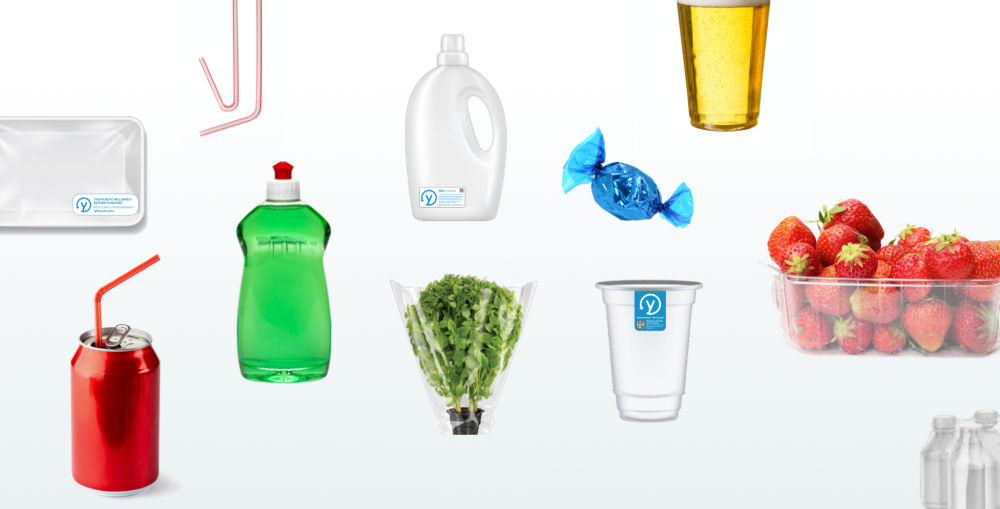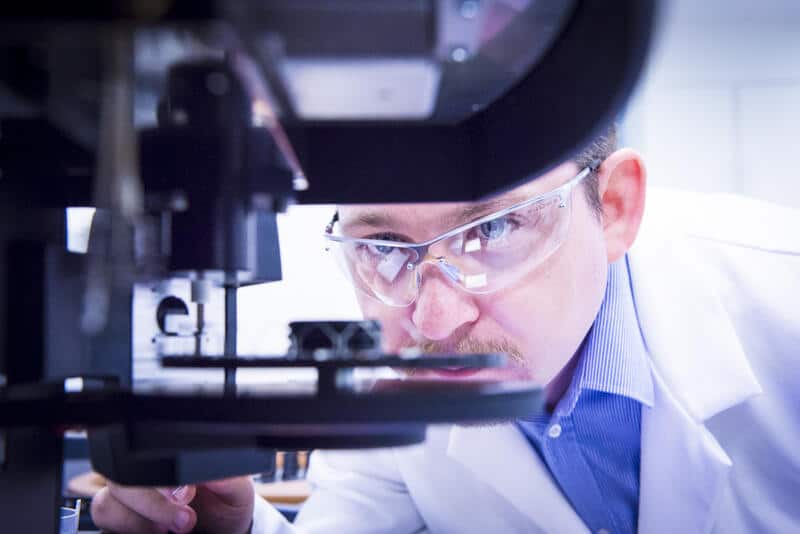In an exclusive conversation with Packaging360, Richard Horne of Polymateria unravels the journey towards Biotransformation & the approach towards Sustainability & Circular Economy
Read the full conversation
Packaging360: What was the inspiration or motivation to embark upon the journey of Polymateria?
Richard Horne: Polymateria’s founders looked at the existing landscape and saw gaps in the current solutions that could truly enable a circular economy worldwide. They did not see a viable solution for the 32% of plastic waste that ends up in our environment as unmanaged waste. With 80% of plastic in our oceans originating as unmanaged waste on land, it is vital to stop plastic on land before it reaches the ocean. This is Polymateria’s core mission.
Globally, only 14% of plastic packaging is collected for recycling, and with losses in sorting and reprocessing, only 10% gets recycled. 14% of plastic packaging is incinerated for energy recovery and 40% of plastic packaging is landfilled sanitarily in sites. The remainder – roughly one third – is simply polluted to the environment.
Moreover, there is a strong need for multiple solutions to tackle this large global problem. The first focus should always be to manage the waste stream and recycle the product. This ensures value and continued use of the material.
In parallel, while remaining compatible with all the other end-of-life scenarios mentioned above, Polymateria’s technology ensures we have viable, credible, and scalable solution for those plastics that end up in nature. If left unmanaged, over two billion tonnes of plastic pollution will end up in the natural environment and go on to pollute our oceans by 2050 under a business-as-usual scenario. More innovation is needed to solve this problem

Packaging360: Can you please explain the fundamentals of your technology? Which are the polymers which can benefit from this technology? How it would enable management of plastics waste? How have the claims been tested & validated?
Richard Horne: Polymateria’s technology is uniquely able to transform and biodegrade the most common, everyday plastic applications. Plastic containing our technology gets transformed from plastic to wax. The synthetic prebiotic included makes the wax attractive to nature, enabling it to be quickly consumed by bacteria, microbes, and fungi. This process, called biotransformation, delivers full biodegradation of polyolefins (PP and PE) with no microplastics or toxic residue left behind.
Deployed as a bespoke masterbatch, or incorporated into resin pellets, the storage and use phase sees the plastic retaining all its functionalities, behaving the same way as its non-degradable conventional correspondents. The typical timeframe for the technology to remain dormant is 6-24 months. This time is selected bespoke based on the application.
During this use phase, plastic containing Polymateria’s technology can be recycled like any other plastic. The technology has been proven to have no impact on recycling streams. The time-controlled nature of the technology allows a ‘Recycle By’ date to be given to promote recycling to consumers.
Activation of the technology is triggered by the natural elements of decay (light, heat, air, moisture) with a chemical transformation causing a rapid loss of physical properties. The technology attacks the crystalline and amorphous region of the polymer structure, rapidly turning it into a bioavailable wax that is no longer a plastic and is not harmful to the environment within a timeframe of around 3-5 months.
The bioavailable wax is consumed by naturally occurring bacteria, microbes, and fungi in the open terrestrial environment and under ambient environment conditions, leaving just water, microbial biomass, and carbon dioxide in a typical timeframe of around 12 months.
Polymateria’s biotransformation technology is applicable for most polyethene and polypropylene applications/products – whether from conventional or biobased feedstock. This includes bags, PE films, BOPP films, thermoformed articles, and cutlery. All claims around biodegradation, zero microplastic generation and zero ecotoxicity are supported by third-party testing data from ISO-accredited labs. The technology is also backed up by peer-reviewed scientific papers in highly respected journals.
The technology has been tested & certified to international biodegradability standards (BSI PAS 9017, ISO17556). Standardised tests using ISO methods are used to show each of the following:
- Chemical analysis to ensure no microplastics are present
- Ecotoxicology testing to prove no toxic substances are present
- Full biodegradation
The methods used to test and verify the technology are being adopted world-wide, including in India, as examples of best practice. The criteria sets a clear benchmark to ensure plastic fully biodegrades without any microplastics or toxic residues.
Following the amendments to India’s Plastic Waste Management Gazette in July and February 2022, biodegradable plastic which works in the ambient environment – and meets the criteria of no microplastics, no toxic residue and full biodegradation – can receive exemption from India’s single-use plastic ban and EPR requirements. It is also important note that a clear distinction was made between biodegradable plastics meeting these criteria and oxo-biodegradable/oxo-biodegradable plastics in NITI Aayog’s recent report on Alternatives to Plastic
Packaging360: What is the fate of the end product of biotransformation? What is its environmental impact?
Richard Horne: All that remains following the biotransformation process is water, carbon dioxide and biomass (i.e. more bacteria, microbes and fungi). No microplastics or toxic residue are left behind. The environmental impact is therefore highly positive as plastic which would have accumulated in the environment for hundreds of years – making its way into rivers and oceans – instead safely returns to nature in as quickly as a year.
Packaging360: How do you see the potential of your technology in the Indian market? & how do you envisage the competition with respect to other technologies like PLA, PEF , PBAT etc?
Richard Horne: The Indian plastic industry is large, worth 96 billion USD, with many different players and technologies co-existing. In a market of this size, there is no one-size-fits-all approach and no silver bullet.
Plastic pollution in India has long been a problem and multiple attempts have been initiated to tackle it. The government has launched measures including banning single-use plastics, increasing the application thickness to promote recycling, and introducing an EPR (extender producer responsibility) scheme. All of these measures and more will be needed to address the problem.
Most of the plastic pollution in India is due to single-use plastics produced by polyolefins. India consumes around 20,000 tonnes of plastic per year which directly and indirectly contributes to plastic pollution. Polymateria’s technology is ideally suited to tackling pollution from the most problematic plastic items and has an important role to play in India alongside existing technologies.
The Government of India has recognised the importance of plastic which biodegrades in the ambient environment with the addition of biodegradable plastic as an alternative to single-use plastics in India alongside compostable plastics and making it exempt from the EPR requirements.
Competition in the market should always exist to drive choice and affordability across various options. We welcome this competition. We also recognise that innovation is urgently needed as we will not solve a large, complex, and growing problem by doing what we have always done.
Personally, for me, we owe it to our children, our grandchildren, and our planet to support innovation, and understand that the problem is large enough, the issue big enough, and the challenge sizeable enough that there is a space for not 1, not 10, but hundreds of technologies, platforms, and innovations to play in the same space.
 About Richard Horne
About Richard Horne
Richard Horne is a globally experienced, detail orientated proactive business leader with deep experience spanning Sales, Marketing, Commercial, R&D, Innovation and Operations, showing strong organisational awareness in a technically challenging industry with an Executive MBA, and a strong record of accomplishment of driving and accelerating profitable growth, transforming inefficient and unprofitable customers and businesses, expanding margins and strengthening employee engagement to build high performing businesses and teams.
Dr. R. Rangaprasad, is currently Business Head, Packaging 360, a Mumbai based knowledge service provider vertical under Catalyzing New Technology (CNT) Expositions & Services LLP. Packaging 360 is a comprehensive knowledge sharing ecosystem for the Indian packaging industry (www.packaging360.in).
Dr. R. Rangaprasad is a chemical technologist by training having earned his Ph.D. (Tech) degree from UDCT (now ICT) in 1992.







